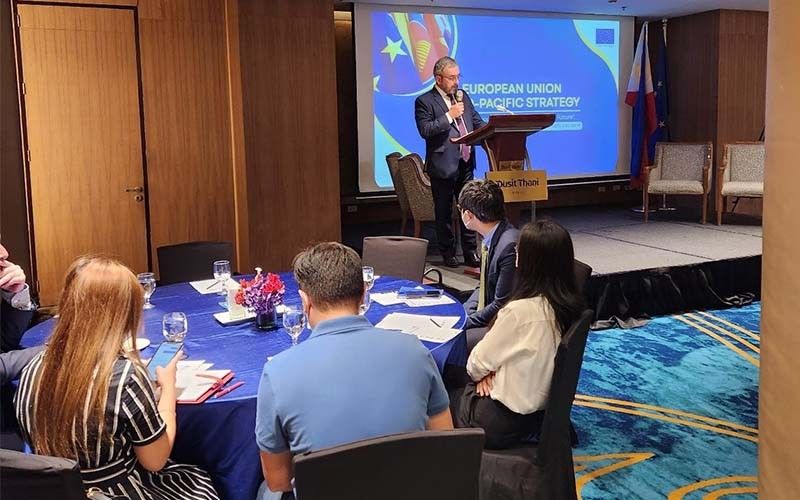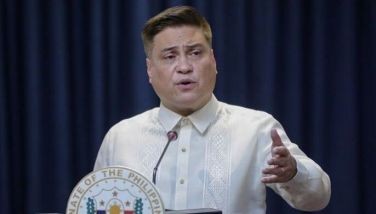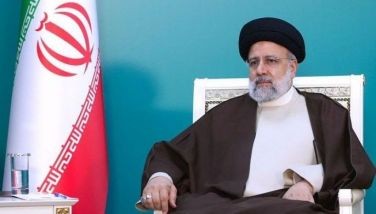‘EU’s Indo-Pacific strategy reflects Philippine foreign policy stance’

MANILA, Philippines — The European Union’s Indo-Pacific strategy is said to mirror and support how the Philippines is approaching its foreign policy in a “multipolar” world.
“It sees itself as one that should engage other countries,” Victor Andres Manhit, president of Stratbase ADR Institute, said at the European Union Indo-Pacific Strategy Conference.
“The more friends that can support Philippine national interests vis-a-vis shared values, vis-a-vis rules-based international order is best for the country and to expand that kind of cooperation and collaboration will making their foreign policy stronger.”
Former ambassador Laura Quiambao-del Rosario noted that with the European Union’s more active presence in the region, the former diplomat added that this opens up opportunities for the Philippines to go beyond a “binary approach” in foreign policy. She served as the DFA Undersecretary for International Economic Relations under the Aquino administration.
“I think everybody reaized that during the lack of sufficient attention of EU and the US on Asia, another power came in Asia and somehow tried to influence everything that goes around us,” Quiambao-del Rosario said.
Cooperation and partnership as basis
But what is the EU’s strategy in the Indo-Pacific region in the first place? EU Ambassador to the Philippines Luc Veron emphasized that the EU strategy is based on cooperation and partnership, instead of encouraging dependency between states.
In his first State of the Nation Address, President Ferdinand “Bongbong” Marcos Jr. underscored that his administration will be pursuing an “independent foreign policy” where the Philippines will continue to be a “friend to all and enemy to none.”
READ: Marcos Jr.’s foreign policy statements enough, reflect trust in Cabinet — analysts
A notable example of this is the Philippines' statement during the sixth anniversary of the Hague ruling that invalidated China’s nine-dash claims over the West Philippine Sea. The Department of Foreign Affairs in July said: “We welcome the support of a growing list of countries for the Award.”
Manhit said: “The more countries define themselves as countries that push for a rules-based order, I think it tempers down any security challenges."
This is also seen with the situation in Ukraine, which received much support from other countries in drilling down the importance of the international rules-based order and respecting one’s sovereignty.
READ: Philippines votes to condemn Russia's 'illegal annexation' of Ukraine land
Beyond the traditional path
Asia Pacific European External Action Service Deputy Managing Director Paola Pampaloni said EU’s offer differentiates itself by its emphasis on value-based investments and financial sustainability.
Manuel Everga III, director of Ateneo de Manila’s European Studies Programme, highlighted the importance of the regional bloc’s offer that is “outside the traditional hardpower or military areas.”
“This is worth considering as well… because you can cooperate with the EU in terms of these less hardcore military areas and more towards economic cooperation, the environment on what areas it can further cooperate with the EU on and we see some of these activities happening already,” Everga said. — Kaycee Valmonte
- Latest
- Trending


































